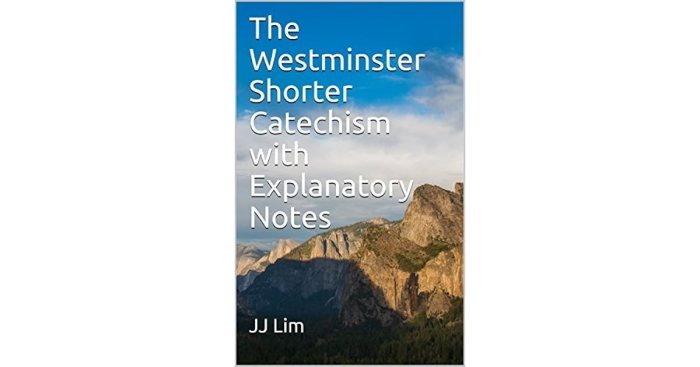The topic overview quotes the westminster shorter catechism – The Westminster Shorter Catechism, a seminal work in Christian theology, provides a comprehensive overview of the core doctrines of the Christian faith. This document, shaped by the historical context and theological influences of its time, has had a profound impact on Christian thought and practice.
In this overview, we will explore the key quotes from the Westminster Shorter Catechism, examining their theological significance and impact. We will also analyze the catechism’s teachings on human nature, sin, salvation, and the Christian life, highlighting its strengths and weaknesses and comparing it with other Christian traditions.
Overview of the Westminster Shorter Catechism

The Westminster Shorter Catechism is a concise summary of Christian doctrine, first published in 1647. It was developed by the Westminster Assembly of Divines, a group of Puritan theologians convened by the English Parliament to reform the Church of England.
The catechism was intended to provide a comprehensive and accessible explanation of the Christian faith for both children and adults.
The Westminster Shorter Catechism is divided into 107 questions and answers, covering a wide range of theological topics, including the nature of God, the fall of man, salvation through Jesus Christ, and the Christian life. It is considered a classic statement of Reformed theology and has been widely used in Presbyterian and Reformed churches for centuries.
Key Quotes from the Westminster Shorter Catechism

“The chief end of man is to glorify God, and to enjoy him forever.”
This quote encapsulates the central purpose of human existence according to the Westminster Shorter Catechism. It asserts that the ultimate goal of every human being is to bring glory to God and to experience the joy of knowing and communing with him.
“All mankind by their fall lost communion with God, are under his wrath and curse, and so made liable to all the miseries of this life, to death itself, and to the pains of hell forever.”
This quote describes the consequences of the fall of man. As a result of Adam and Eve’s disobedience in the Garden of Eden, all humans have lost their relationship with God and are subject to his judgment and punishment.
“The only Redeemer of God’s elect is the Lord Jesus Christ, who, being the eternal Son of God, became man, and so was, and continueth to be, God and man in two distinct natures and one person, forever.”
This quote affirms the unique role of Jesus Christ as the Savior of mankind. It declares that Jesus is both fully God and fully man, and that he came to earth to redeem sinners from their sins and reconcile them to God.
Analysis of the Catechism’s Teachings

The Westminster Shorter Catechism presents a comprehensive view of Christian doctrine that is rooted in the Bible. It emphasizes the sovereignty of God, the depravity of man, the necessity of salvation through Jesus Christ, and the importance of living a holy life in accordance with God’s commandments.
One of the strengths of the catechism is its clarity and precision. It uses simple and straightforward language to explain complex theological concepts. This makes it accessible to people of all ages and backgrounds.
However, some critics have argued that the catechism is too rigid and narrow in its scope. They contend that it does not give enough attention to the role of the Holy Spirit or the importance of Christian experience.
Impact and Legacy of the Westminster Shorter Catechism
The Westminster Shorter Catechism has had a profound impact on Christian thought and practice. It has been used for centuries to teach children and adults about the Christian faith. It has also been a source of inspiration and guidance for pastors and theologians.
The catechism has played a significant role in the development of Presbyterian and Reformed churches. It is considered a standard text for these denominations and is used in their богословские семинары, Sunday schools, and worship services.
Today, the Westminster Shorter Catechism continues to be used in Christian education and worship. It is a valuable resource for anyone who wants to learn more about the Christian faith and live a life that is pleasing to God.
Clarifying Questions: The Topic Overview Quotes The Westminster Shorter Catechism
What is the purpose of the Westminster Shorter Catechism?
The Westminster Shorter Catechism was created as a concise and accessible summary of Christian doctrine, intended for use in catechetical instruction and personal devotion.
What are the key doctrines covered in the Westminster Shorter Catechism?
The catechism covers a wide range of Christian doctrines, including the nature of God, the Trinity, the fall of humanity, salvation through Christ, and the Christian life.
How has the Westminster Shorter Catechism influenced Christian thought and practice?
The Westminster Shorter Catechism has been widely used in Presbyterian and Reformed churches, shaping their understanding of Christian doctrine and practice. It has also influenced other Christian traditions, providing a common language and framework for theological discussion.